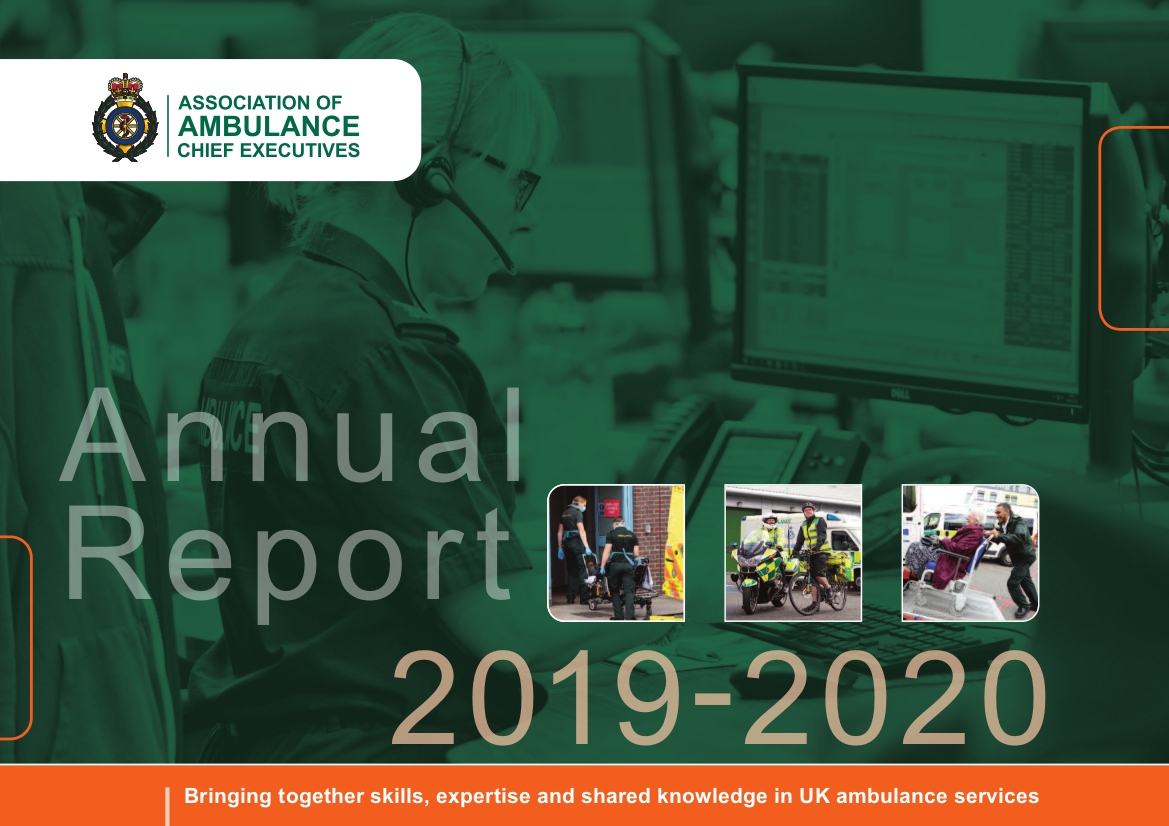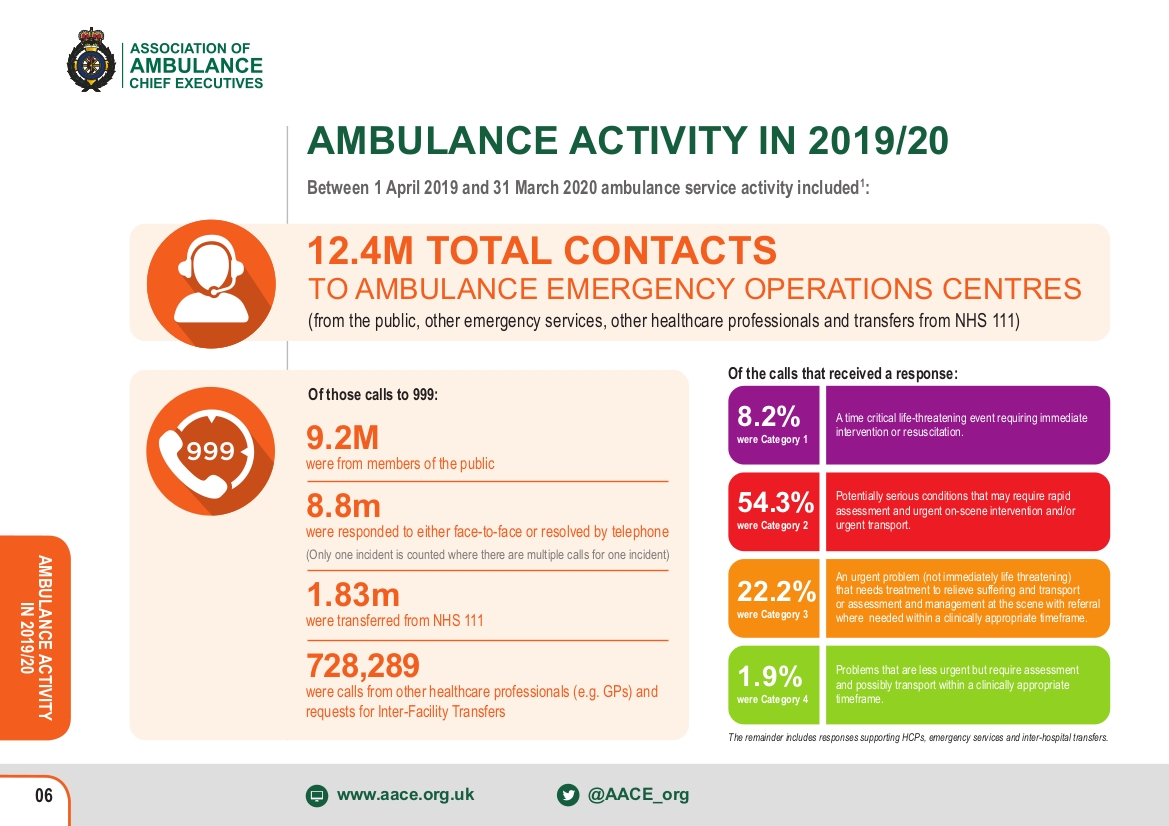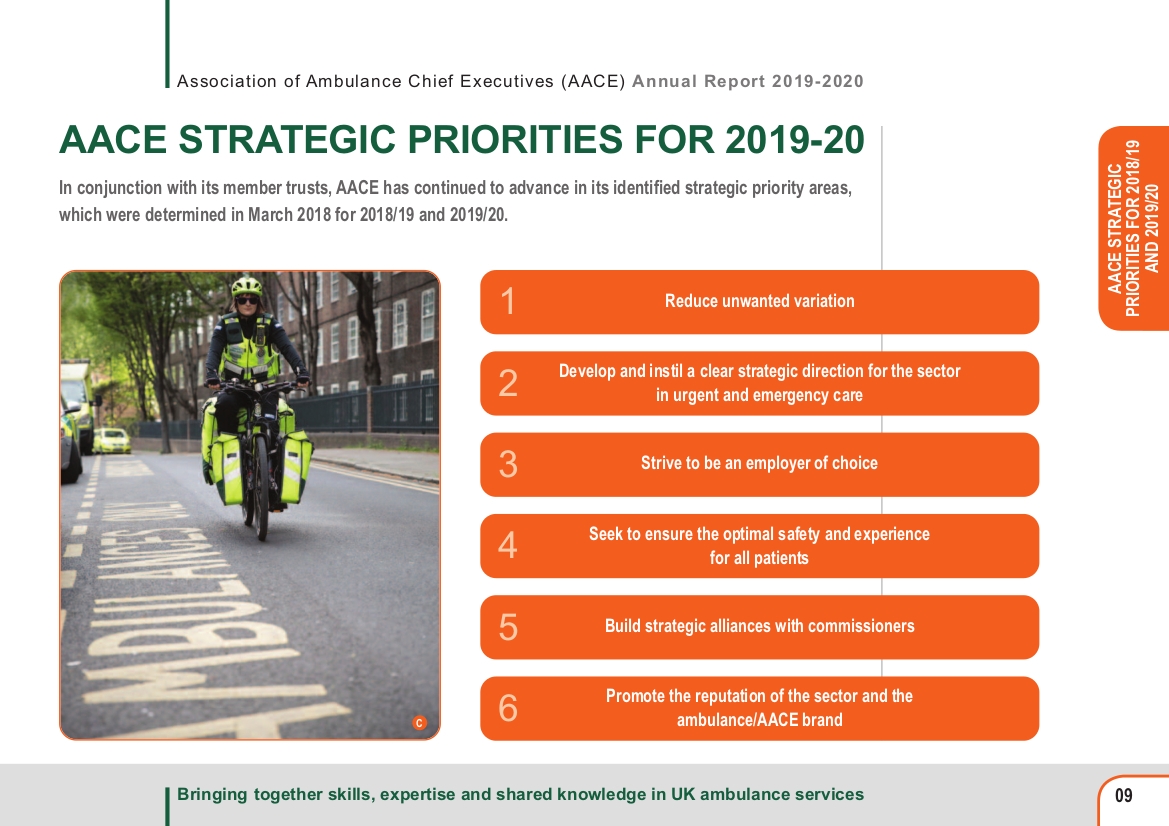The financial year of 2019/20 was a year of three-quarters and a quarter. From April to December, life continued as ‘normal’ for ambulance trusts – steadily increasing demand on services, implementation of strategies to improve performance and transform clinical responses; efforts to reduce variation in service provision across the country, increase resilience and build integration across local systems continued. Then in January, the imminent threat of a new virus beginning to spread across the globe became increasingly real.
The ambulance sector began receiving its first COVID-19 related NHS111 and 999 calls towards the end of February 2020 and attended its first COVID-19 incidents in March. Throughout March and April, demand on services across the country escalated out of all known proportion, particularly for our NHS111 services.
These were evidently unprecedented times, not just for the ambulance service but for the whole of the NHS, Government, and life in general. So, the end of 2019/20, for everyone across the world, was far from ‘normal’.
Ambulance services, at the forefront of caring for patients within the pandemic setting, had to take rapid and significant steps in order to manage the extreme levels of demand placed on the 999 service, NHS111 and Patient Transport Services as the crisis unfolded.
Operating models were transformed, digital solutions were implemented, workforce numbers were temporarily swelled, and processes and pathways that had once seemed frustratingly unattainable, suddenly became achievable – all at great speed.
Many of the changes that were implemented were already identified as objectives in ambulance trusts’ strategies for delivering against the NHS Long Term Plan (LTP). Most of them comprise solutions that are not just about ambulance operations, but form co-designed, integrated models working with partner providers in the NHS and in other sectors.
Members of the Association of Ambulance Chief Executives (AACE) swiftly worked together to provide national coordination and consistency in the response to COVID-19, supported by the central AACE team.
Their annual report for 2019/20 focuses mostly on their ‘business as usual’ activities in Q1 – Q3.
Much of the work underway in Q4 was put on hold while they prioritised the response to COVID-19. Details of their Q4 activities and learning will be captured in the report for 2020/21 as the global effort to control the pandemic continues and we adjust to a ‘new normal’.



